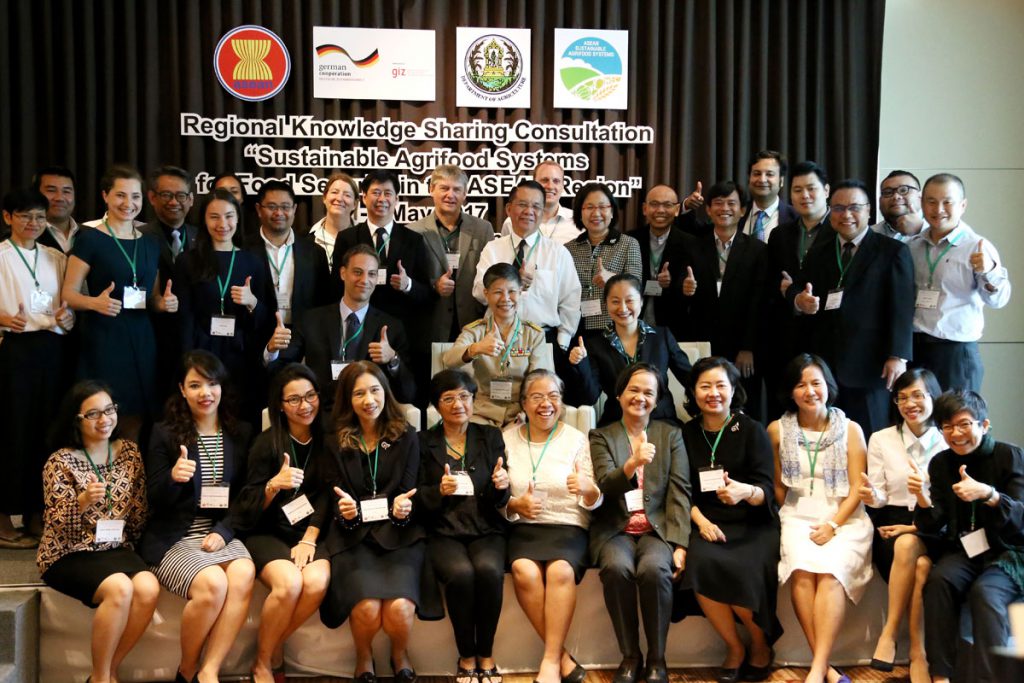Some 40 participants made up of policy-makers, experts, government and private sector agencies and Civil Society Organizations (CSO) in food security and sustainable agriculture from ASEAN countries recently met at the Regional Knowledge Sharing Consultation on “Sustainable Agrifood Systems for Food Security and Sustainable Development in the ASEAN Region” held from 1 to 3 May 2017 in Bangkok, Thailand.
Recommendations and partnership mechanisms for forming national and regional policy and strategies for sustainable agrifood systems in the ASEAN region were drawn up as an outcome of the meeting. They will be incorporated with the ASEAN-German Sustainable Agrifood Systems project’s Executive Summary Report to be submitted to the ASEAN Sectoral Working Group on Crops for consideration.
During the opening session, Dr. Surmsuk Salakpetch, Deputy Director General of Department of Agriculture from Ministry of Agriculture and Cooperatives, Thailand said: “In the aftermath of the 2007/2008 food price crisis, the ASEAN Summit of 2009 pledged to embrace food security as a permanent and high priority… Since then, the concept of “Sustainable Agrifood Systems” has been introduced and its approach has been implemented in the ASEAN region. This approach has also contributed to achieving Sustainable Development Goals such as ending poverty, eliminating hunger, improving health and nutrition, reducing environmental degradation, combating climate change and building strong partnerships at the national, regional and global levels.”
Dr. Surmsuk added: “The ASEAN sustainable agrifood systems also recognize the integration of local philosophy and wisdoms applied in various countries in the region, and in Thailand in particular, agriculture under H.M. King Bhumibol’s Sufficiency Economy Philosophy.”
Food production will need to increase by at least 60 per cent over the next 35 years to provide food security for the 9 billion people expected to be living on the planet. Based on the State of Food Insecurity in the World 2015 by the United Nations Food and Agriculture Organization (FAO), even though the total number of undernourished people has fallen in the past two years, more than one in nine people are still suffering from hunger.
Southeast Asia itself has also been facing challenges in food security and nutrition. Increasing affluence in ASEAN accompanied by population growth puts pressure on food demand and competition for resources, as well as change consumption patterns. High and volatile food prices, the impact of climate change on agriculture, the conversion of agricultural lands to industrial areas and the migration of labour from rural to urban areas as well as decreasing number of farmers from the new generation are also considered as long-term pressures on food security and nutrition.
The Regional Knowledge Sharing Consultation on “Sustainable Agrifood Systems for Food Security and Sustainable Development in the ASEAN Region” served as a platform for policy-makers, experts and key multi-stakeholder actors including government, the public and private sectors and civil society organizations representing smallholder farmers to exchange their experiences and lessons learnt, issues and challenges and recommend approaches and the future prospects of sustainable agrifood systems towards food security and sustainable development in the ASEAN Region.



